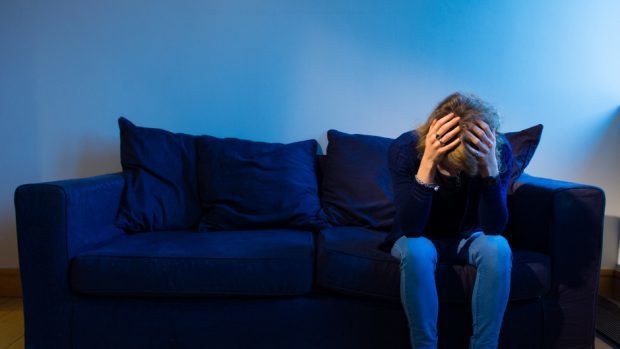A women’s toilet is often a good place for a poster, given that when using facilities women can take their time.
There we might see advertising for special events or advice about health matters.
In many places right now women can see posters that tell us “one in three women will experience domestic abuse or sexual violence in their lifetime”.
One in three, what a shocking statistic this is.
I have been thinking about this number, especially when I am in places where there are lots of women. Does this mean that wherever women are found, this statistic is true? So on the bus, does it mean one in three of the women I can see? Does it mean one in three of the women in the doctor’s surgery? Does it mean one in three of those in the queue at the chemist or those busy buying Christmas cards and wrapping paper?
When I am in church, does it mean one in three of the women who have come to worship? And, when I see young girls playing together, does it really mean maybe some of these already, but certainly many more in the years to come?
I would really like it not to mean these things, but, sadly, I have heard too many women’s stories to think that domestic abuse and sexual violence happen only in some parts of society, or among certain social groups. Women and girls in all parts of society, and in all faith groups, might experience abuse and violence. This is something that is everywhere, and it is not acceptable.
Today is day four in the United Nations-backed 16 Days Of Activism Against Gender Based Violence. These days are used to raise awareness of the range of abuse women suffer, almost entirely at the hands of men. During these days women in many different places in the world march, protest, lobby governments, and raise their voices to call for change. It really is unacceptable that women around the world, but also here in Scotland, live with such high levels of fear and violence.
The law of the land helps us understand what is being referred to. It is against the law for one person to cause another psychological or physical harm.
Psychological harm includes being made to feel fear, alarm or distress. For many women and girls abuse can begin with intimidation and control, and continue through a process of “gas-lighting”, a form of psychological manipulation that causes the victim to doubt their judgement and sanity. Psychological harm can include harassment and stalking.
Physical harm involves violence, and includes physical beatings and rape. In the UK a woman is killed every three days by someone they know, usually in their own home.
It is difficult to judge whether such abuse and violence is on the increase, or whether it is simply that women are being helped to come forward and report it. The strength and determination it takes to report such incidents, including rape, cannot be overestimated.
For many women, shame and guilt are very present, together with a sense of failure and an inappropriate sense of responsibility. Women and girls are slow to speak up because they think they will not be believed. While the law says that these things are always crimes, women are commonly made to carry the blame. They are told they bring these things upon themselves by how they dress, how they speak, or how they behave. And women are slow to report rape because very few cases that result in prosecution lead to convictions.
The campaign encouraging awareness of the prevalence of gender-based violence is important for churches, as Christians believe that Jesus Christ came so that all people could live their lives in peace and safety. Such a life is difficult for women and girls experiencing abuse, so it is our common concern that all people experience healthy and affirming relationships, especially in their own homes.
We are raising our voices in protest at the high numbers of women and girls that suffer in this way, but also to say to that those most affected need help and support.
Women and girls who are victims need to know for sure that they will be believed, and that what has happened to them is not their fault. We need to be clear that there is no excuse for these crimes, and ensure that help and support is readily available to all victims.
Our priority must be to help women to be safe, and then we can turn our attention to why these crimes occur in the first place. For this to happen, conversations need to take place in many settings about why so many men find it necessary to turn to violence in this way.
The Rt Rev Anne Dyer is Episcopalian Bishop of Aberdeen and Orkney and Scotland’s first female bishop
